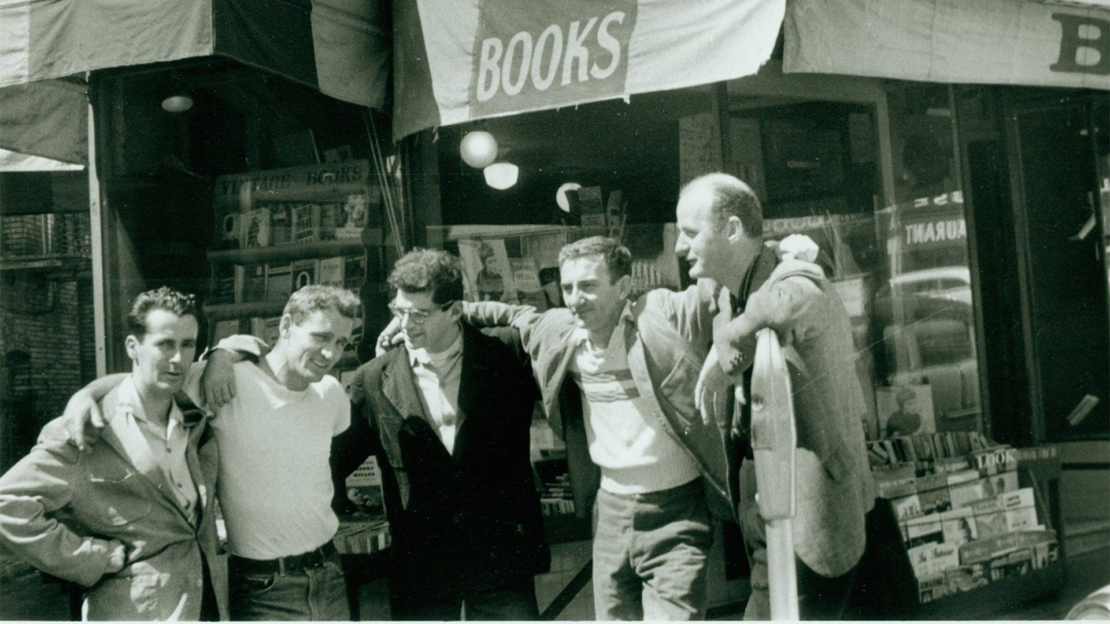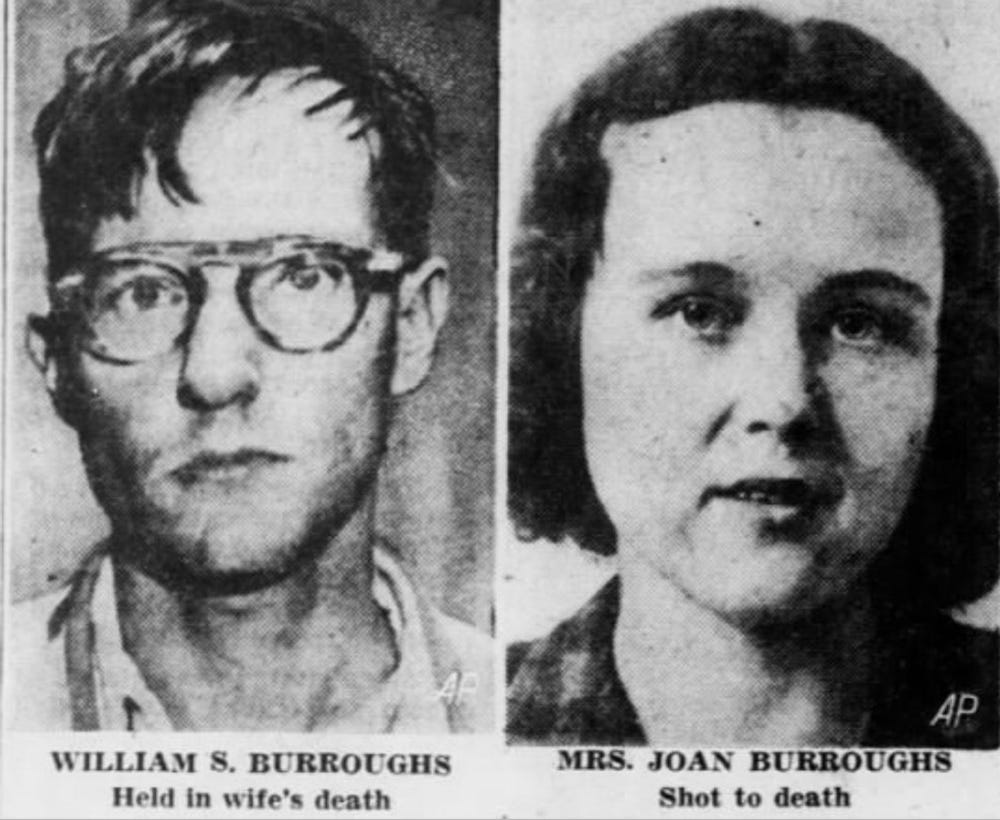The Mystic Boobs of the ‘Beat’ generation : classics or misinterpreted train wrecks?

After seeing Jack Kerouac’s work recommended in some videos, I decided to read ‘On the Road’ which is well known for defining the ‘Beat’ generation and the counterculture. After finishing the book, I became weirdly intrigued by Kerouac and later, Burroughs. Why were these chaotic authors so inspiring to the likes of Kurt Cobain and Bob Dylan and what makes their work classics to this day? To me, these authors have fascinating minds, let alone lives, but their potential was wasted through the actions they committed and some of the ideologies they had. In short, they were crappy people that wrote really good books.
Now before we sink into the Burroughs-Kerouac rabbit hole, it’s important to establish what the ‘Beat’ generation and counterculture was. The 1950’s was a period in America after the second world war in which Kerouac, Burroughs and Allen Ginsburg began writing without conforming to the existent American, conservative traditions. They expressed a new-found sense of young freedom and expression which was inspiring to many people. In 1948, they decided to name this era the ‘Beat’ generation as many people felt beaten down by societal norms and issues. Through their work, they would talk freely about sexual and drug-related experiences and express political opinions that weren’t confined to the left or right. People that followed this movement were labelled “beatniks” and adopted this hippie-like lifestyle along with their jazz slang. This movement inspired many music artists like Elvis Presley and Bob Dylan whilst also creating a sub-culture of people that didn’t believe in typical jobs, instead resorting to a life of crime and living in squalor.

Despite this beautifully romanticised lifestyle that Kerouac conjured up, beneath these beat generation authors lay a devastating darkness that eventually took their lives. Dylan never met Kerouac, he simply resonated with his work and phrases that inspired his music. The reality of this hipsterism was that Kerouac was an alcoholic and in 1969 at age 47, he lived out his last hours choking on his own blood. Furthermore, in 1951, Burroughs shot his own wife (Joan Vollmer) in the face after getting drunk and missing the glass she was holding up above her head. These men promoted this counterculture lifestyle, the same lifestyle that generated tragedy in their own lives. I feel that Burroughs felt highly of himself, this is evident as he was quick to judge Kurt Cobain’s suicide stating that he had “let down his family” and “demoralised the fans”. Cobain was a huge fan of Burrough’s dense style and writing technique, so much so, that he collaborated with him on ‘Priest’. Upon meeting Cobain, Burroughs even states that,” As far as I was concerned, he was dead already.” This strikes a chord with me particularly as I find these statements quite ironic and hypocritical. A man who murdered his own wife carelessly and had severe drug dependencies to heroine is criticising people that experience similar difficulties to him. A man who in some ways contributed to the glorification of promiscuous and dangerous lifestyles is criticising people for falling victim to these lifestyles and consequently suffering because of them. It is also absurd to put fans at such a pedestal and shame a dead person who thought so greatly of you. Predictably, this beatnik lifestyle, in the end, appears to be an all-consuming plague that ruptured many lives.
From this alternate perspective, should we be classing these works as classics when they encourage youth down a reckless, romanticised path? To this day, drug-use is heavily embellished, which makes me ponder if these truly are the classics, they are made out to be or just nostalgic, overrated works. Perhaps this widespread idolisation of these works is what deceives them as classics, but people haven’t stopped to consider what really is spoken and promoted. On the blurb of the penguin essentials edition of ‘On the Road’, Burroughs is quoted in saying, “On the Road sold a trillion Levis and a million espresso machines”, but what he fails to consider is the trillions and millions of drugs and delusions sold to struggling kids. The same kids that Burroughs and Kerouac were once themselves. Additionally, Kerouac’s ideologies were heavily entangled with harmful rhetoric that isn’t timeless nor a classic and shouldn’t exist in any generation to come. From his privileged perspective on life, his work portrays women as weak and discardable, and he frequently engaged in romantic racism which a lot of beatnik authors have been accused of. For example, in ‘On the Road’, Kerouac romanticises cotton-picking and describes, “It was beautiful”. When reading this, I couldn’t quite fathom the absolute white privilege this passage reeked with. You can begin to see how truly out of touch the beat generation is, for a counterculture that is so hipster and free it sure does discriminate.
So, why does this literature have such a chokehold on so many people? I think that many of the struggles and traumas of Kerouac and Burroughs deeply resonated with many. We saw it through Cobain’s love of Burroughs- perhaps he initially resonated with Burroughs’ own substance abuse struggles which drew parallels into the musician’s life. And these experiences carry into the modern world, with many people seeking guidance from people who have lived through it, even if they are from a whole other decade in time. Personally, I feel that throughout ‘On the Road’, there are truly moments where Kerouac’s inner workings shine. To me, his mind always seemed so intertwined with death, and I think in some ways he knew he could be a better person but saw no point in it. In one passage, Kerouac writes:
” All the cigarette butts, the bottles, the matchbooks, the come and the gone were swept up in this pile. Had they taken me with it, Dean would never have seen me again. He would have had to roam the entire United States and look in every garbage pail from coast to coast before he found me embryonically convoluted among the rubbishes of my life, his life and the life of everybody concerned and not concerned. What would I have said to him from my rubbish womb? ‘Don’t bother me, man, I’m happy where I am. You lost me one night in Detroit in August nineteen forty-nine. What right have you to come and disturb my reverie in this punkish can?’ “
‘On the Road’- Jack Kerouac
This passage in its entirety, I feel is very important in characterising the mental state of many authors like this. There is almost a sense of depression and hopelessness yet such a narcissistic abandonment of themselves and everyone around them, that they choose to continue writhing in their own conceited bubble.
Separating the work from the author turns out to be a more and more strenuous task but it’s important to remember what you are giving credit to- what actually speaks to you in literature and what doesn’t. However intoxicating Kerouac might be, in the words of Hunter S. Thompson, “ The man is an ass, a mystic boob with intellectual myopia”, and that is more than enough reason to begin to question what we define as classics.
Be the first to write a comment.